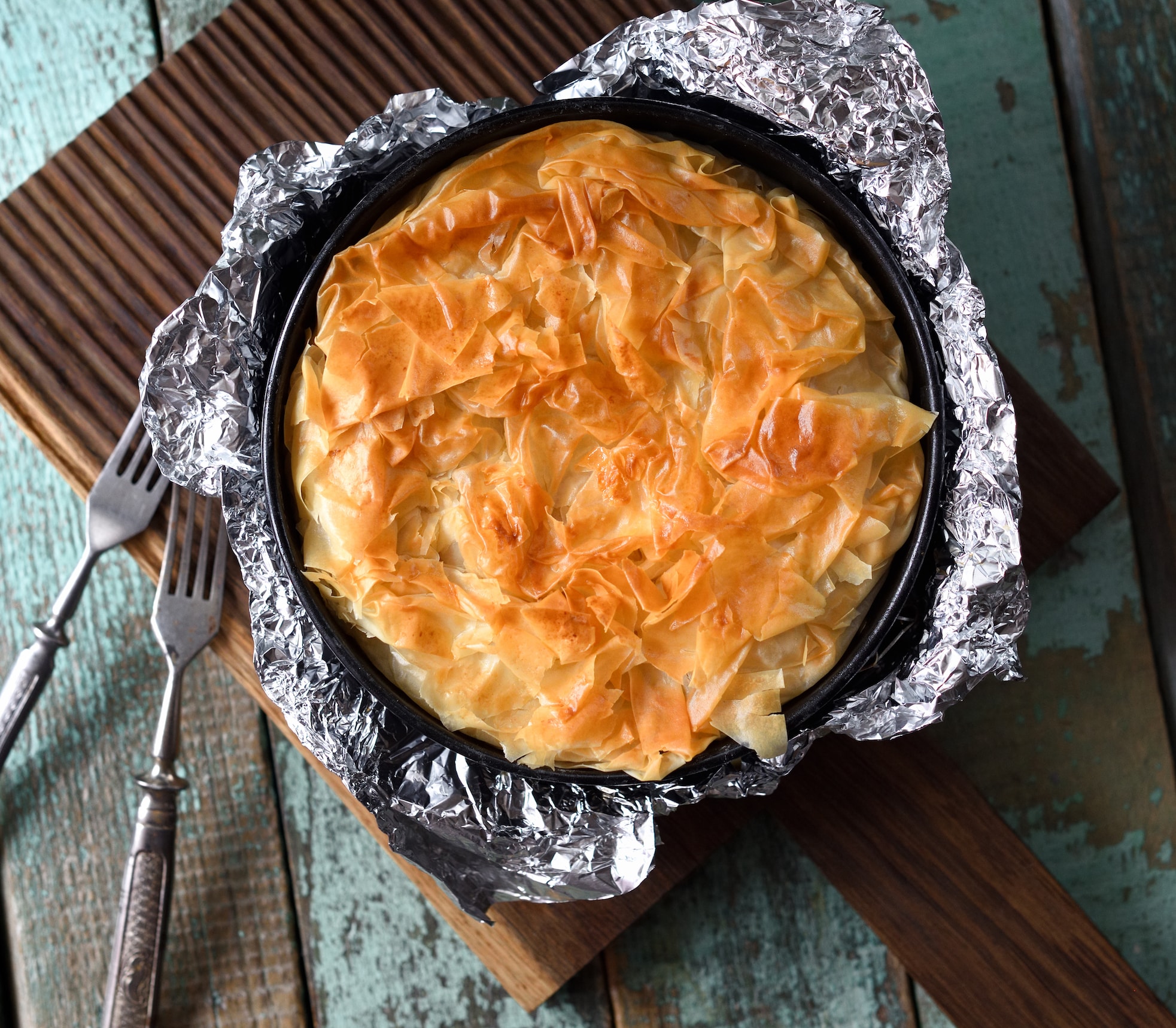<em>Fr Albert Robertson OP prepares a seasonal pie, a meal for June, after a trip to hospital to mend a sliced finger.</em>
Well, it has finally happened. After years in the kitchen I finally nicked some of my finger off while cooking. I now feel like a proper martyr to the culinary arts, having turned the kitchen sink into something redolent of the opening scenes of Saving Private Ryan. While sitting in the Minor Injuries Unit of the Edinburgh Royal Infirmary, looking at an alarmingly large pool of my blood, the practice nurse reassured me that it wasn’t as much as I thought it was and that he had seen much worse. He did tell me, with some gravity, that there might be some scarring, and I reassured him in turn that, given that nobody has declared my left index finger my most distinguished feature, this news was not a crushing blow. Still, it was irritating, mildly painful, and made saying Mass look frankly comical.
As I type this article the following day, one-handed and still waiting for my finger to stop bleeding, I tried to come up with a suitable recipe to mark the occasion in this column. Short of sangria or something involving blood oranges (not in season), I settled on something featuring the offending vegetable I was chopping when the event occurred. After all, psychology suggests that returning to the trauma in a controlled way can aid the healing process, and so I offer a recipe for a cheese and chard pie. The irony is that I don’t even particularly care for chard.
The pie is ideal for a picnic to celebrate National Picnic Week which falls between June 17 to 25. Although generally no fan of al fresco dining, in part because in this country the weather is far from guaranteed, a situation even more true in Scotland, I do have a fondness for picnics. I think this is in part because of memories of the Anglican National Pilgrimage in years past: there’s nothing quite like it in the Catholic Church’s pilgrimages to England’s Nazareth.
When in charge of the refreshments for the Oxford brethren on our annual Dominican provincial pilgrimage a few years ago, I rather pushed the boat out. When one of the brethren asked me what all the food was in aid of, I answered: “It’s the Anglican patrimony.” Picnics are the ideal way of enjoying the bounty of spring fruit and vegetables, just as things begin to wind down a little with the approach of summer. So, take a Sunday afternoon this month to enjoy a bit of al fresco dining, and be careful as you chop that chard.
Cheese and chard pie
400g ricotta
500g chard, stalks removed
Olive oil
1 leek, sliced
1 onion, thinly sliced
2 cloves of garlic, crushed
1 green chilli, deseeded and finely chopped
1 preserved lemon, flesh and pith removed, finely sliced
Pinch of fennel seeds
Juice of 1 lemon
3 large eggs
300g feta
Grated nutmeg
Pack of filo pastry
Heat some olive oil in a saucepan over a medium heat, and add the leek, onion, garlic, chilli, preserved lemon and fennel seeds. Season well and leave to soften for about 10 minutes. Add the chard and lemon juice. Allow the chard to wilt, but not cook too much. Remove from the heat. Once cooled, squeeze out any remaining liquid.
Whisk the eggs in a bowl, mix in the ricotta and feta, then the vegetable mixture, and finally some nutmeg. Heat the oven to 190C/170C fan/gas 5.
Brush a spring-release cake tin with olive oil. Line the bottom with a sheet of filo, adding more sheets so they hang over the sides of the tin. Brush each layer with olive oil. Add your cheese and vegetable mixture to the tin, laying the pastry over the top. Brush with a little more oil and bake for 50 minutes. Give it a chance to cool a little before removing it from the tin.



